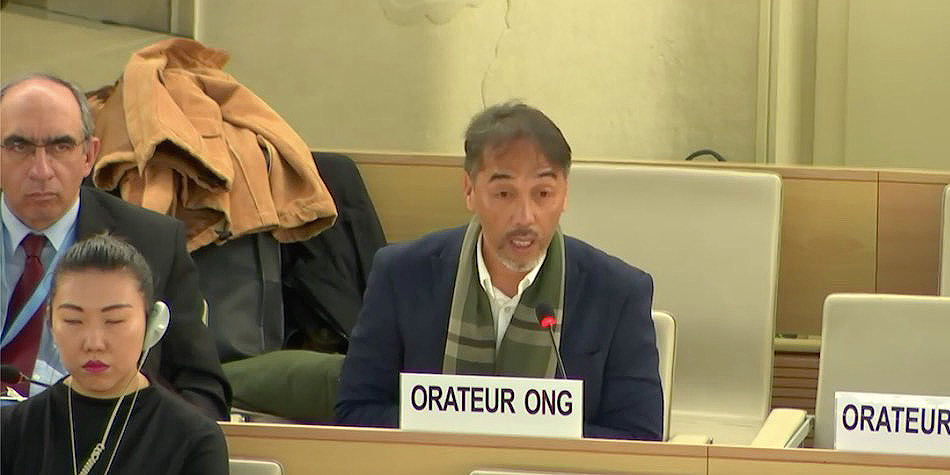UN urges Duterte gov’t to investigate, prosecute rights abusers anew
The United Nations Human Rights Council (UNHRC) again urged the Rodrigo Duterte government to conduct “independent, full, and transparent” investigations to ensure accountability for rights violations and abuses in the Philippines.
In a resolution Wednesday (Philippine time), the UNHRC also condemned all “acts of intimidation and reprisal, both online and offline” against human rights groups and other critics.”
In its 45th General Session from September 14 to October 7, the Council took note of the scathing report by the UN Office of the High Commissioner on Human Rights (OHCHR) last June 4 detailing the Duterte government’s heavy-handed focus on countering national security threats and illegal drugs that has resulted in serious human rights violations, including killings and arbitrary detentions, as well as the vilification of dissent.
[READ: UNITED NATIONS: Rights violations widespread and persistent under Duterte gov’t]
The new resolution recommended that OHCHR and Human Rights High Commissioner Michelle Bachelet assist the Philippines in its “fulfillment of its international human rights obligations and commitments” through:
- technical assistance and capacity-building for domestic investigative and accountability measures
- data gathering on alleged police violations, engagement with civil society
- national mechanism for reporting and follow-up
- counter-terrorism legislation
- and human rights-based approaches to drug control.
The resolution was sponsored by the Philippine government itself, along with fellow member-States India and Nepal, as well as non-members Hungary, Thailand, Turkey and Iceland.
‘Human rights crisis’
A human rights alliance said the latest UNHRC resolution indicates that the international community has acknowledged the human rights crisis in the Philippines and persists in its scrutiny of the Duterte government.
The Ecumenical Voice for Human Rights and Peace in the Philippines (EcuVoice) said the resolution is proof that the Duterte administration, despite its belligerent stance and statements in past HRC sessions, has also started to acknowledge “domestic and international pressure for justice and accountability” for its reported human rights violations.
“The resolution comes after the damning report of UN High Commissioner for Human Rights Michelle Bachelet on the persistent and widespread killings and human rights violations in the Philippines, the numerous statements of UN Special Procedures expressing concern on the situation, the European Parliament resolution calling on the European Commission to initiate the temporary withdrawal of trade perks of the Philippines in the light of the serious rights violations, and the proposed measure at the US Congress to end military and police aid to the Philippine government,” EcuVoice said in a statement.
EcuVoice led the filing of dozens of reports of human rights violations by the Duterte government at the HRC’s 43rd General Session in Geneva, Switzerland last February and March that became part of Bachelet’s report recommending investigations to be conducted in the Philippines.
Human rights group Karapatan said the new resolution is “a sign that the international community remains committed in closely monitoring the situation of human rights in the country.”
Karapatan secretary general Cristina Palabay, however, expressed disappointment that the new resolution “looks over the urgent demands of victims, their families and communities” for in-country probes.
“[I]t (the resolution) falls short of a decisive and adequate response to the worsening human rights crisis in the country — and we strongly believe that technical cooperation and capacity-building activities would not stop the administration’s human rights violations,” Palabay said.
Karapatan challenged the Duterte government to allow access to UN investigators if it has nothing to hide in line with Bachelet’s original recommendation.
It also urged governments, parliaments, civil society groups, and international non-governmental organizations to conduct independent investigations to validate the real human rights situation in the Philippines. # (Raymund B. Villanueva)



